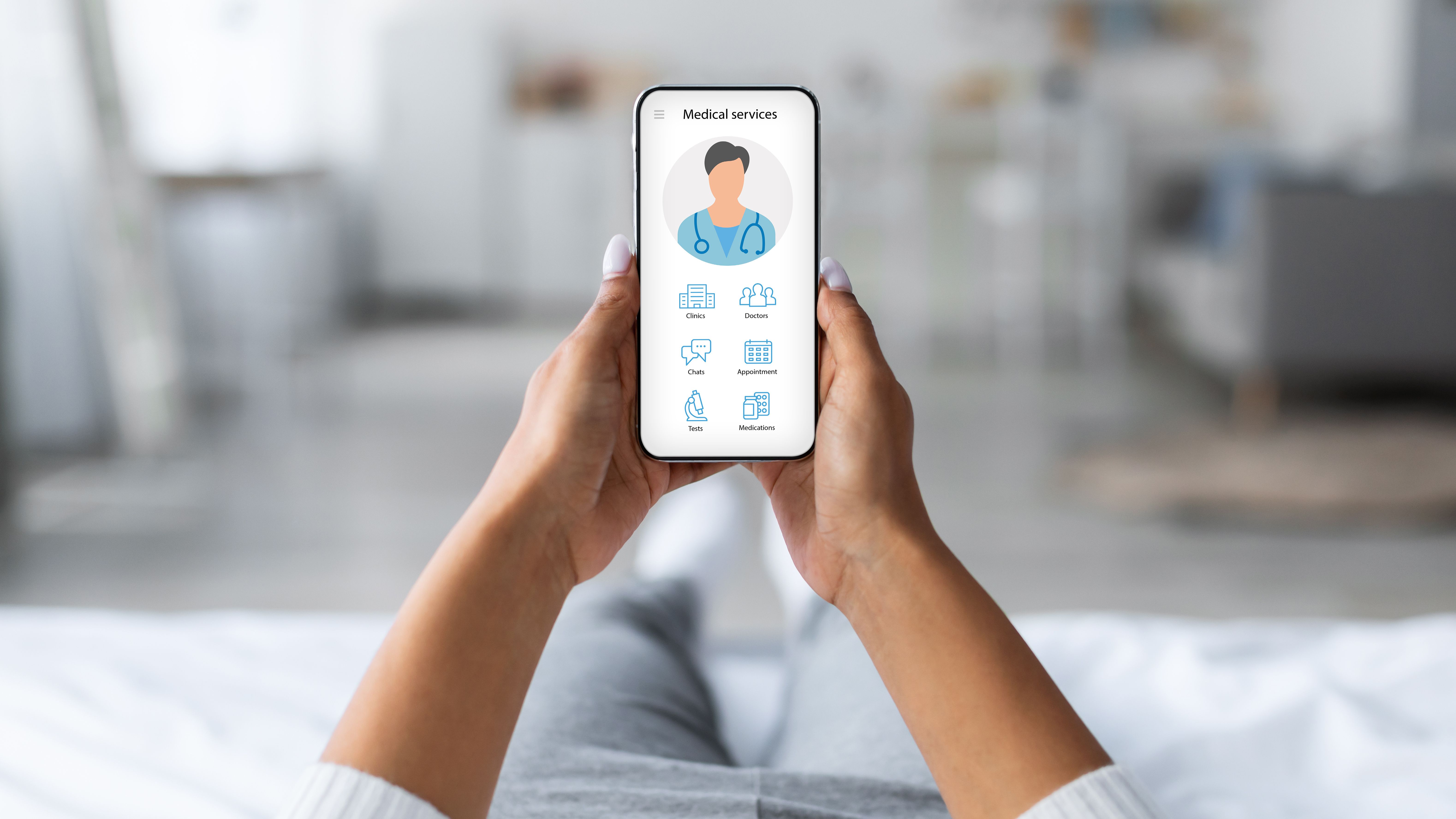This article was originally published on HCP Live®.
According to data provided by the American College of Rheumatology, in addition to common conditions associated with fibromyalgia, FM-ACT, a smartphone-based digital therapy app, provides statistically superior results in fibromyalgia symptoms, effects, function, and well-being. Advantage. Convergence 2023 in San Diego, CA.1
Woman using medical app on mobile phone while lying in bed | Prostock-studio – stock.adobe.com

“Acceptance and Commitment Therapy (ACT) is a guideline-recommended form of cognitive behavioral therapy (CBT) that has been empirically validated as a non-drug treatment for fibromyalgia,” wrote lead researcher R Michael Gendreau, Ph.D., Gendreau Consulting, LLC and colleagues. “However, clinical adoption of this therapy has been limited, in part because the availability of qualified providers is a major barrier. “
To help address this access barrier, the recently FDA-approved FM-ACT is designed to provide self-guided ACT to treat symptoms associated with fibromyalgia.Preliminary clinical benefits of a prescribing digital app have been observed in a pilot randomized controlled trial that has previously been used in HCP live. In the analysis, patients who used FM-ACT received 84% positive ratings in “ease of use” and 88% had a positive experience in “interface and satisfaction.” Additionally, mHealth Application Usability Questionnaire (MAUQ) results showed higher ratings in the categories of “adequate progress information” and “easy to learn”.2
In the prospective, multicenter, randomized controlled trial PROSPER-FM, patients meeting the American College of Rheumatology 2016 criteria for fibromyalgia were randomly assigned to receive 12 weeks of FM-ACT or a digital symptom tracker control. Patients were able to continue any ongoing fibromyalgia treatments. The app consists of 42 structured ACT lessons, activities designed to encourage behavior change and exercise, and mindfulness exercises. Patients in the control group received daily symptom tracking as well as fibromyalgia educational materials.
The primary endpoint was Patient Global Impression of Change (PGIC), with secondary endpoints focusing on the Fibromyalgia Impact Questionnaire-Revised (FIQ-R), pain interference and intensity, and sleep interference. These endpoints were obtained weekly through electronic patient-reported outcomes (ePRO).
Of 591 patients assessed for eligibility, 275 patients were ultimately enrolled and randomized to receive FM-ACT (n = 140) or the Symptom Tracker (n = 135). The mean age of patients was 49 years, the majority were white (83%), and the majority were female (94.3% in the FM-ACT group and 92.6% in the symptom tracker group). Baseline fibromyalgia characteristics and baseline FIQ-R were comparable between groups. During follow-up, 20 patients in the FM-ACT cohort and 5 patients in the symptom tracking cohort discontinued the intervention.
At week 12, improvement in PGIC was observed in 70.6% of patients in the FM-ACT cohort compared with only 22.2% of patients in the symptom tracking cohort (ask<.001). Additionally, patients who received the FM-ACT intervention had significantly lower post-treatment FIQ-R total scores compared with the symptom-tracking intervention (-9.1 vs. -1.1, respectively; ask<.001, effect size = .65). The digital therapy app also had statistical superiority on all measures, including pain intensity and interference, Beck Depression Inventory II (-3.6 vs. -.1, respectively), Commitment to Action (CAQ-8), Patient-Reported Outcomes Measurement Information System (PROMIS) fatigue and sleep disturbance, and the Pain Psychological Inflexibility Scale (PIPS). No treatment-related adverse events occurred during the study.
“The proven digital ACT therapy delivered by FM-ACT, combined with the low-risk safety profile of this device-based intervention, represents a step toward reaching and benefiting the broader fibromyalgia population with non-drug therapies,” the researchers wrote. An important step forward.”
refer to
1. Gendreau M, Chadwick A, McCracken L, Williams D, et al. Digital Acceptance and Commitment Therapy Improves Outcomes in Fibromyalgia: Results from a Pivotal, Multicentre, Randomized Controlled Trial. Presented at: American College of Rheumatology 2023 Meeting. November 10-15, 2023; San Diego, CA.
2. Pine L. Digital behavioral therapy app designed to help manage fibromyalgia patients. HCP live. March 2, 2023. Accessed 1 December 2023. https://www.hcplive.com/view/digital-behavioral-therapy-app-aims-to-help-manage-patients-with-fibromyalgia.
